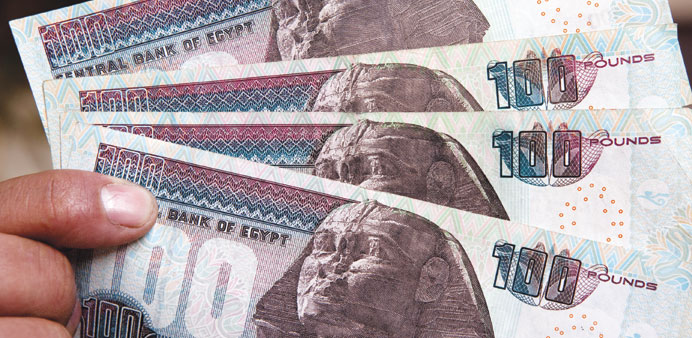Reuters/Cairo
Egypt’s central bank will keep interest rates on hold next Thursday as it balances the need to fight inflation while supporting the currency and stimulating an economy battered by more than three years of upheaval, a Reuters poll showed.
Annual urban consumer inflation remains high despite slowing for three consecutive months before holding steady at 9.8% in March, but it may still be too early for the central bank to cut rates to spur on economic activity.
Six economists polled by Reuters said they expect the central bank to keep rates on hold on April 24.
Moustafa Bassiouny, an economist at Signet Institute, said the central bank’s Monetary Policy Committee was likely to wait until next month before cutting rates.
“I expect the MPC to keep rates on hold until the following meeting because of the continuing inflationary pressures and the sluggish economic performance so far this year,” he said.
At its last meeting, on February 27, it kept its deposit and lending rates at 8.25 and 9.25%, respectively.
William Jackson, emerging markets economist at Capital Economics, said one problem was that inflation could rise more this year.
“The recent rise in global food prices could cause Egyptian food inflation to pick up later this year,” he said.
Egypt’s economy and the pound have suffered since autocratic leader Hosni Mubarak was ousted in a popular uprising in 2011, deterring the tourists and foreign investors who were a major source of hard currency for the country.
The tumble in the Egyptian pound has also pressured the central bank to keep interest rates high to lure funds out of foreign currencies. The bank has been burning up its foreign currency holdings to support the local currency.
Economic growth in the Arab world’s most populous nation, meanwhile, has been sluggish despite it receiving more than $12bn in aid from Saudi Arabia, the UAE and Saudi Arabia after the army ousted former president Mohamed Mursi last July.
The government launched two stimulus packages worth around 30bn Egyptian pounds ($4.3bn) each after receiving that aid, but economic growth has yet to pick up.
Gross domestic product growth slowed to 1% in the first quarter of 2014.

